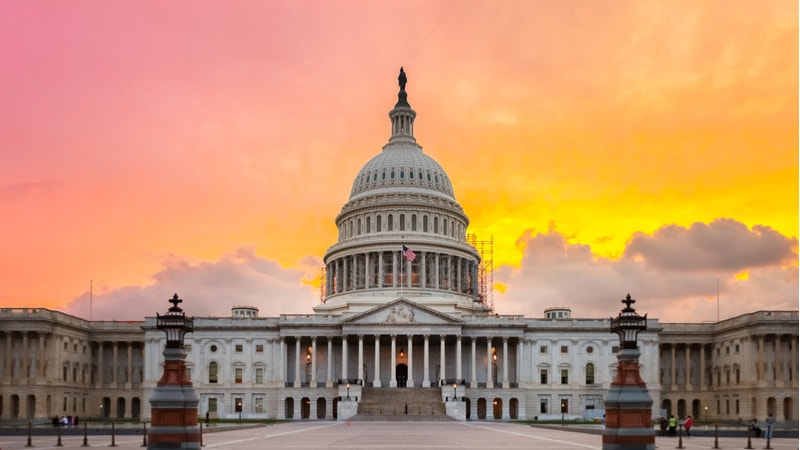
The Senate Commerce Committee advanced key pieces of IT legislation out of markup during today’s business meeting.
The Cybersecurity Competitions to Yield Better Efforts to Research the Latest Exceptionally Advanced Problems (CYBER LEAP) Act of 2020; Spectrum IT Modernization Act of 2020; and the Identifying Outputs of Generative Adversarial Networks (IOGAN) Act all cleared the Committee via a voice vote on May 20 and will move to the floor of the Senate for a full vote.
The CYBER LEAP Act, sponsored by Sens. Jacky Rosen, D-Nev., Roger Wicker, R-Miss., and Cory Gardner, R-Colo., would direct the Secretary of Commerce to establish “grand challenge” competitions to “achieve high-priority breakthroughs in cybersecurity, including expanding our cybersecurity workforce, defending against artificial intelligence threats, and protecting our nation against cyberattacks.”
The bill would capitalize on existing open innovation authorities to hold the grand challenge. The Secretary of Commerce would be tasked with working with a presidential advisory committee to determine the scope and objectives of such competitions. In terms of funding, the legislation calls for funding to be pooled from multiple Federal agencies and non-Federal entities. The legislation does not appear to have a companion bill in the House.
The Spectrum IT Modernization Act of 2020, sponsored by Commerce Committee leadership Sens. Roger Wicker, R-Miss., and Maria Cantwell, D-Wash., would require the Assistant Secretary of Commerce for Communications and Information to submit a plan to Congress regarding IT system modernization for the National Telecommunications and Information Administration. When developing the modernization plan, the bill specifically instructs the Assistant Secretary to look into “potential innovative technological capabilities … including cloud-based databases, artificial intelligence technologies, automation, and improved modeling and simulation capabilities” in order to improve NTIA’s management of Federal spectrum. The legislation does not appear to have a companion bill in the House.
The IOGAN Act, sponsored by Sens. Catherine Cortez Masto, D-Nev., and Jerry Moran, R-Kan., would direct the National Science Foundation (NSF) and the National Institute of Standards and Technology (NIST) to support research to accelerate the development of technologies that could help improve the detection of deepfakes. According to Cortez Mastro, the legislation also asks NIST to develop and set measurements and standards relating to the technologies, as well as develop a report on the feasibility of public-private partnerships to detect deepfakes. The legislation has a companion bill in the House and is sponsored by Reps. Haley Stevens, D-Mich., Jamie Baird, R-Ind., and former Rep. Katie Hill, D-Calif.
